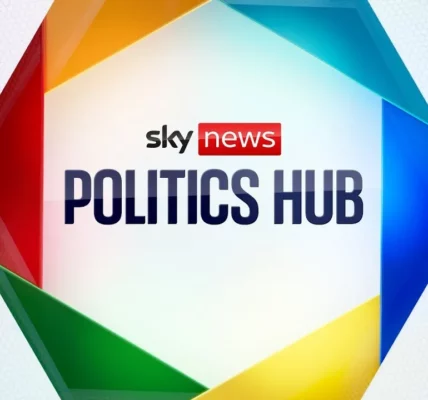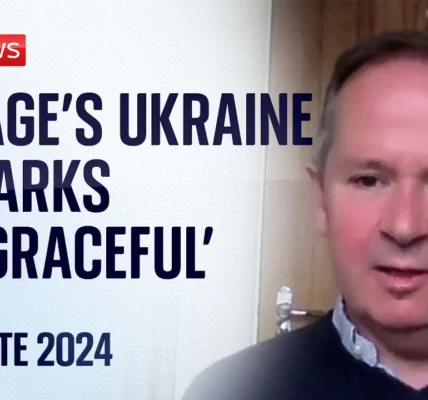Nigel Farage Launches Reform UK’s Manifesto: Key Points and Political Implications

This article provides a comprehensive analysis of Nigel Farage’s recent launch of Reform UK’s manifesto. It explores the party’s promises, voter reactions, and the broader political implications as the UK approaches its general elections.
Introduction
Nigel Farage, the leader of Reform UK, has made waves in the political landscape with the unveiling of the party’s manifesto—a strategic move aimed at positioning Reform UK as the primary opposition to a potential Labour government. This manifesto, which Farage refers to as a ‘contract with the public,’ outlines ambitious promises including substantial tax cuts and sweeping immigration reforms. As the elections draw near, the implications of these policies warrant a closer examination.
Key Features of Reform UK’s Manifesto
The manifesto is characterized by several bold commitments that Farage believes will resonate with voters. Here are some of the most notable points:
- Immigration Reform: Farage has pledged to halt illegal immigration by stopping migrant boats within 100 days, freezing non-essential immigration, taxing employers who hire foreign workers, and exiting the European Court of Human Rights.
- Tax Cuts: Promises include raising the income tax threshold to £20,000 and abolishing Stamp Duty, which could significantly impact homebuyers.
- Increased Defense Spending: The party aims to boost defense expenditure to 3% of GDP within six years and recruit 30,000 additional personnel into the armed forces.
- NHS Voucher Scheme: A proposed scheme would allow private treatment vouchers for patients unable to see a GP within three days.
Voter Reactions and Public Sentiment
The reception of Reform UK’s manifesto has been mixed, with some voters expressing enthusiasm while others remain skeptical. In Merthyr Tydfil, a historically Labour stronghold, the party’s messaging is met with both support and doubt:
Supporters’ Views
Some voters, particularly those feeling disillusioned with the current political climate, are drawn to Farage’s promises of change:
- “Farage speaks for the people; we need someone who cares about our issues,” stated a local supporter.
- First-time voters expressed their intent to back Reform UK as a necessary alternative to Labour.
Critics’ Concerns
Conversely, critics point to the feasibility of the party’s plans:
- Many question whether the proposed tax cuts and spending increases can be realistically funded.
- There are fears that Reform UK’s radical policies might not have a solid grounding in economic reality.
Economic Implications of the Manifesto
Analysts have scrutinized the economic underpinnings of Reform UK’s manifesto, raising significant questions about its viability:
Funding the Promises
Farage’s proposals suggest an additional £141 billion in annual spending, raising concerns about sustainability:
- The party’s plan to cut wasteful spending in government budgets is ambitious, but the specifics remain vague.
- Critics argue that the manifesto does not adequately account for essential expenditures, such as welfare and pensions.
- Economic experts warn of a potential “black hole” in funding if promised cuts do not materialize.
Political Consequences
The manifesto’s ambitious nature may lead to unintended political consequences:
- A significant Reform UK presence could split the conservative vote, altering the dynamics of the election.
- The party’s appeal in traditionally Labour areas might challenge Labour’s historical dominance.
Conclusion
Nigel Farage’s launch of Reform UK’s manifesto marks a pivotal moment in the UK’s political landscape as the country gears up for elections. With ambitious promises surrounding tax cuts and immigration reform, the party aims to carve out a significant niche as the true opposition to Labour. However, the feasibility of these proposals poses critical questions about their potential impact on the economy and voter trust. As the election approaches, it is essential for voters to critically assess these pledges and consider their implications for the future of the UK.
For further insights and updates on the evolving political landscape, be sure to follow our coverage and analysis.
“`




